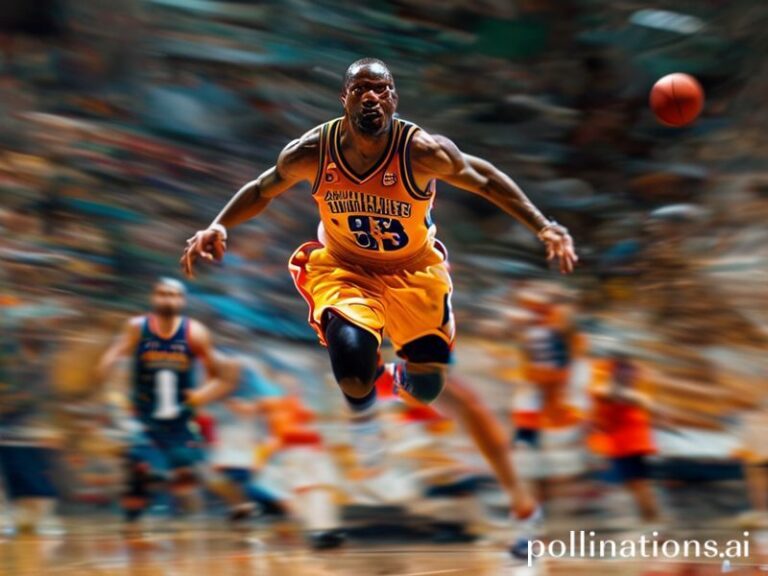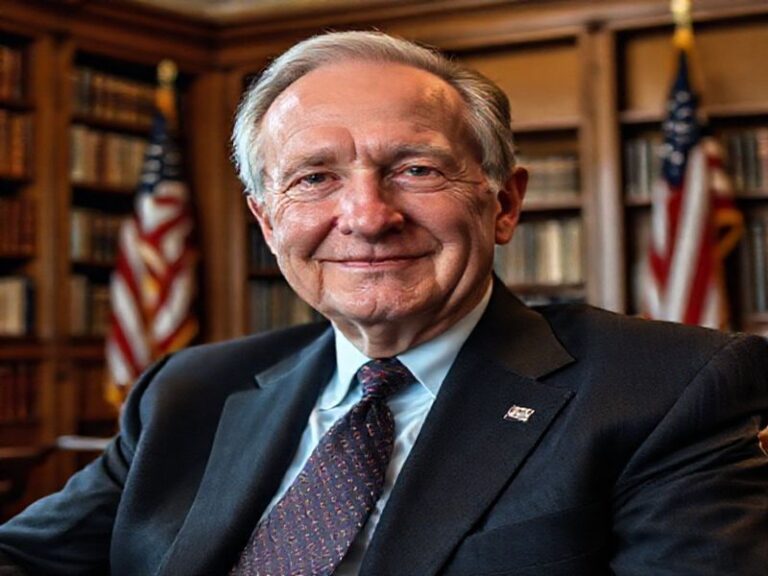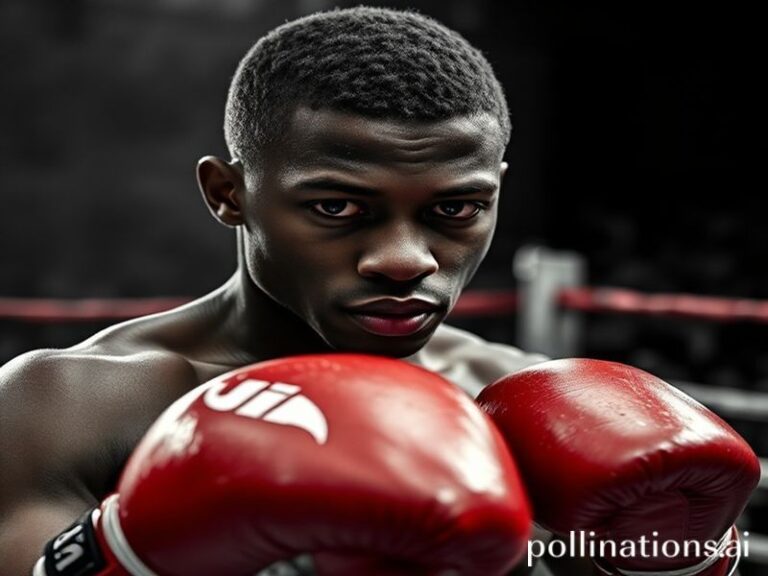Global Sadfleck: How Ben Affleck’s Face Became the World Economy’s Mood Ring
Affleck, the Accidental Geopolitician: How One Bostonian Became the UN’s Unwilling Rorschach Test
It began, like most modern tragedies, on a red carpet: Ben Affleck—actor, director, tabloid chew-toy, and, improbably, global policy Rorschach—stood outside the Venice Film Festival in 2023 wearing a face that looked like it had just read the IMF’s latest outlook. The photo ricocheted from Lagos to Lahore, captioned in thirty-two languages, each adding its own cultural seasoning. In Nairobi he was “mzee wa huzuni,” the elder of sorrow; in Seoul a meme compared his expression to Samsung’s quarterly earnings chart—an elegant downward slope. Overnight, a man who once fought CGI aliens in a rubber bat-suit had become the planet’s shared metaphor for late-stage everything.
The world has always outsourced its symbolism to Hollywood; it’s cheaper than developing your own. But Affleck presents a special case study in geopolitical ventriloquism. At a time when trust in institutions is measured in negative interest rates, the sadfleck meme offered a neutral vessel: neither NATO nor BRICS could claim him, yet everyone recognized the slump. The French diagnosed an existential crisis; the Turks saw the lira; the British simply muttered “Welcome to the queue, mate.” A UN intern in Geneva even added his face to the annual Human Development Report—slide 42, right between climate refugees and declining press freedom—because, she explained, “It saves 500 words.”
Affleck’s actual résumé is almost too perfect for this role. He’s been the golden boy (Good Will Hunting, 1997), the cautionary tale (Gigli, 2003), the redemption arc (Argo, 2012), and now the post-peak elder statesman who still gets invited to Davos because, well, who else can both pronounce “multilateral” and draw box-office in China? In 2010 he founded the Eastern Congo Initiative, proving that celebrities can still visit war zones without live-streaming it for content. Congolese journalists, a famously unimpressed cohort, gave him the ultimate compliment: “He listens.” That’s more than can be said for most UN envoys, who tend to treat local briefings like speed-dating with malaria pills.
But the real alchemy happens on the global attention market. While diplomats drone on about rules-based orders, Affleck’s tired eyes communicate macroeconomic fatigue faster than any G7 communiqué. When the yen cratered last spring, Japanese TikTokers superimposed his grimace over the Nikkei ticker; the post got 3.4 million likes and was quietly studied in a Keio University seminar titled “Soft Power and Facial Sympathy Loops.” Meanwhile, the European Central Bank—never accused of a sense of humor—circulated an internal memo (leaked, naturally) suggesting the “Affleck Index” as a contrarian market indicator: when sightings spike, buy defense stocks and rosé.
Of course, the joke is on us. The man himself is merely trying to survive a custody schedule and the existential horror of being perennially cast as himself. Yet in the same week that Sudan’s civil war displaced another million souls, international newsfeeds devoted equal pixels to Affleck’s rumored reunion with Jennifer Lopez and the collapse of the Sahel. The algorithmic equivalence is grotesque, but also honest: audiences will scroll past famine for a celebrity frown they can meme in six seconds flat. If that’s not a diagnostic chart of our collective attention deficit, what is?
Still, Affleck trudges on, a reluctant Sisyphus pushing goodwill up a hill of apathy. He testifies before Congress, negotiates with warlords, and still finds time to get papped buying Dunkin’—a beverage now served, thanks to global franchising, in the very refugee camps his foundation funds. Somewhere in that loop lies the punchline: America exports both its wars and its weary mascots, wrapped in the same disposable cup.
So here’s to Ben Affleck, the 21st century’s accidental geopolitician: too famous to be ignored, too glum to be believed, and just earnest enough to remind the planet that even in an age of drone strikes and deepfakes, the most translatable language remains a human face caught in the headlights of history. If the world ends not with a bang but a whimper, don’t be surprised if that whimper sounds suspiciously like a Bostonian sigh.







